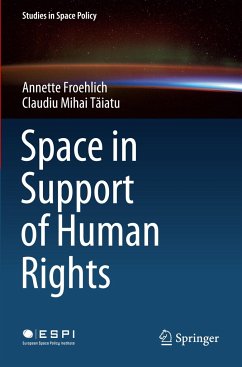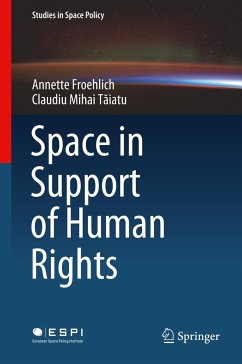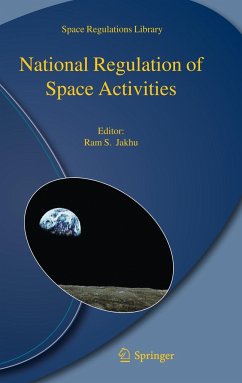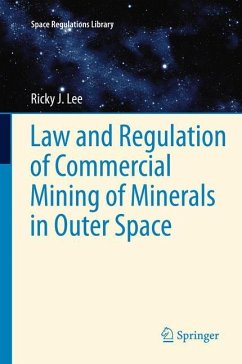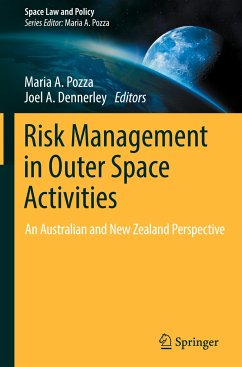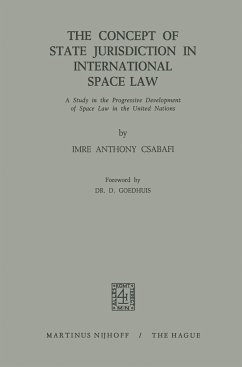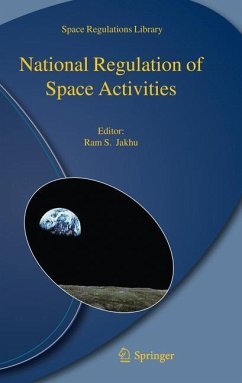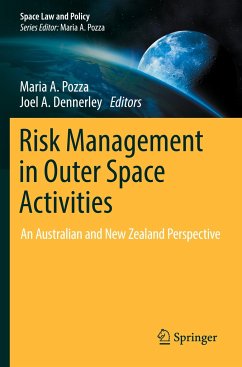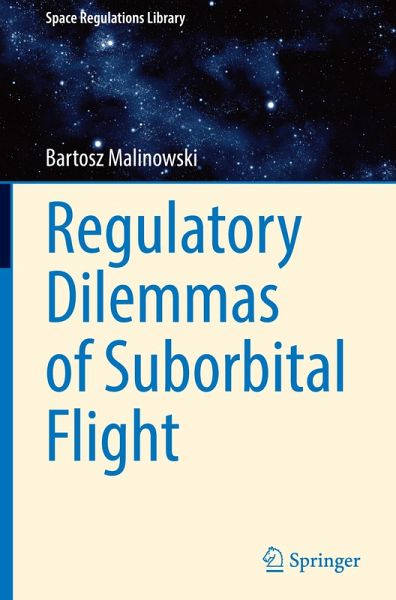
Regulatory Dilemmas of Suborbital Flight

PAYBACK Punkte
53 °P sammeln!
This book addresses legislative challenges faced by national and EU legislators, and by the international community, in the suborbital flight sector.Apart from a few isolated jurisdictions, the current state of regulation in the field of suborbital aviation is characterized by legal uncertainty and the risk of arbitrary, socially and economically harmful decisions by public administration bodies. The importance of suborbital flight regulation, which includes exploring and defining its status in international aerospace law, EU law, and in national legal systems, is supported by the development ...
This book addresses legislative challenges faced by national and EU legislators, and by the international community, in the suborbital flight sector.
Apart from a few isolated jurisdictions, the current state of regulation in the field of suborbital aviation is characterized by legal uncertainty and the risk of arbitrary, socially and economically harmful decisions by public administration bodies. The importance of suborbital flight regulation, which includes exploring and defining its status in international aerospace law, EU law, and in national legal systems, is supported by the development of projects for the use of suborbital vehicles, the technological significance of suborbital flight for the development of space activities and, consequently, for all future human economic activity.
Successful suborbital flights, if they ensure the recovery and reuse of the launch vehicle, support low-cost vehicle development programs. They allow easier verification of howthe vehicle and its subsystems operate under flight conditions, yielding insights that can be used in future orbital vehicles. This reduces the financial risks and, in the case of manned flights, increases the safety of the participants. Suborbital rockets also provide a platform for microgravity research, studying the upper layers of the atmosphere, Earth's magnetic field, and solar physics, as well as a test platform for satellite equipment, space tourism, and potential rapid high-altitude transport between two locations on the surface.
Apart from a few isolated jurisdictions, the current state of regulation in the field of suborbital aviation is characterized by legal uncertainty and the risk of arbitrary, socially and economically harmful decisions by public administration bodies. The importance of suborbital flight regulation, which includes exploring and defining its status in international aerospace law, EU law, and in national legal systems, is supported by the development of projects for the use of suborbital vehicles, the technological significance of suborbital flight for the development of space activities and, consequently, for all future human economic activity.
Successful suborbital flights, if they ensure the recovery and reuse of the launch vehicle, support low-cost vehicle development programs. They allow easier verification of howthe vehicle and its subsystems operate under flight conditions, yielding insights that can be used in future orbital vehicles. This reduces the financial risks and, in the case of manned flights, increases the safety of the participants. Suborbital rockets also provide a platform for microgravity research, studying the upper layers of the atmosphere, Earth's magnetic field, and solar physics, as well as a test platform for satellite equipment, space tourism, and potential rapid high-altitude transport between two locations on the surface.





